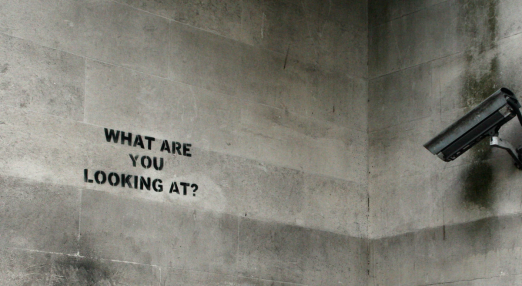Privacy and data protection
Privacy and data protection are essential for us to live, connect, work, create, organise and more. Governments and companies have long used mass surveillance for control trying to legitimise snooping for health, security or other reasons. The near-total digitisation of our lives has made it easier to control, profile and profit from our attention, data, bodies and behaviours in ways that are very difficult for us to understand and challenge. European data protection standards such as the GDPR are a good step forward but we need more to effectively ensure enforcement and protection against unlawful surveillance practices.
Filter resources
-

noyb publishes the draft decision by the DPC in the case against Facebook
The Irish Data Protection Commission (DPC) has sent a draft decision to EDRi's member noyb - European Center for Digital Rights and informed noyb that the draft decision would be shared with the other European Data Protection Authorities for consultation. The case concerns Facebook's reliance on contracts for serving advertising to its users - the legal trick Facebook applied in May 2018 to bypass the GDPR.
Read more
-

Facebook Files: How a ban on surveillance advertising can fix Facebook
Facebook is engulfed in the biggest crisis to hit the company since the Cambridge Analytica scandal. The explosive revelations by whistle-blower Frances Haugen, is that Facebook’s leadership refused to make changes that would make their platforms safer because they “put their immense profits before people”.
Read more
-

“E-evidence” state of play: Building compromises, sweeping rights under the carpet
Despite the Pegasus scandal which has sent shock waves across Europe, and served to shine a light on illegal surveillance practices used by governments, the Council and the European Parliament are moving closer to an agreement on a new data-harvesting tool that could be similarly abused.
Read more
-

EDRi-gram, 6 October 2021
We celebrate a historic milestone for our human rights as the European Parliament heard what EDRi has been long advocating for and took a bold stand against unacceptably risky uses of AI like biometric mass surveillance and predictive policing. We also cheer for civil society's success in Serbia as community and international pressure forced the government to withdraw its law, threatening to subject people to oppressive and privacy intrusive biometric surveillance.
Read more
-

Celebrating a strong European Parliament stance on AI in law enforcement
On 5 October, following a significant push from across civil society, the European Parliament voted to adopt an important new report on Artificial intelligence in criminal law and its use by the police and judicial authorities in criminal matters by a promising majority of 377 votes in favour, to 248 against. This followed a tense vote earlier as a majority of MEPs opposed all four attempts from the European People's Party (EPP) to remove key fundamental rights provisions from the report.
Read more
-

Serbia withdraws a proposed Biometric Surveillance Bill following national and international pressure
On 23 September, the Serbian Minister of Interior Aleksandar Vulin announced that the Draft Law on Internal Affairs, which contained provisions for legalising a massive biometric video surveillance system, was pulled from the further procedure. This turn of events presents a key victory in SHARE Foundation’s two and a half year-long battle against smart cameras in Belgrade, which were installed by the Ministry of Interior and supplied by Chinese tech giant Huawei.
Read more
-

Why you shouldn’t buy Facebook Ray-Ban smart glasses
Imagine that you are strolling along a tranquil beach in your swimsuit. Suddenly, a stranger walking toward you takes out their phone and starts recording you. You might work up the courage to ask how they dared to invade your privacy, and demand they delete the footage.
Read more
-

The terrifying expansion of Sweden’s state surveillance
For the last couple of years the Swedish parliament has been expanding the surveillance capabilities of law enforcement. After the European Court of Justice struck down Sweden's data retention law, the national parliament passed a replacement that did nothing to address any of the issues criticized in the first law. If telecom providers were to challenge it, which no one has shown any willingness to do, it would most likely be struck down again.
Read more
-

Algorithms of trauma: New case study shows that Facebook doesn’t give users real control over disturbing surveillance ads
A case study examined by Panoptykon Foundation, EDRi’s member in Poland, and showcased by the Financial Times, demonstrates how Facebook uses algorithms to deliver personalised ads that may exploit users’ mental vulnerabilities.
Read more
-

How a company illegally exploited the data of 14 million mothers and babies
If you’re in the UK you may know Bounty by the packs of samples they distribute to pregnant women at midwife apps. You might not know that they were also found to have illegally shared data of +14 million mums and babies with 39 companies. Bounty collected personal data from a variety of channels both online and offline: its website, mobile app.
Read more
-

EDRi and 41 human rights organisations call on the European Parliament to reject amendments to AI and criminal law report
EDRi and 41 human rights organisations* call on the members of the European Parliament to vote against the new amendments, which enable discriminatory predictive policing and biometric mass surveillance.
Read more
-

DSA should tackle the root cause of polarisation, not just its symptoms
Yesterday, 30 September 2021, the European Parliament’s Legal Affairs Committee (JURI) approved its Opinion on the proposed Digital Services Act (DSA). European Digital Rights (EDRi) and its 45 member organisations had previously called on JURI members to reject the compromise proposed by the Rapporteur for Opinion.
Read more
